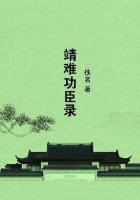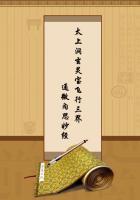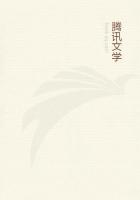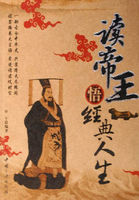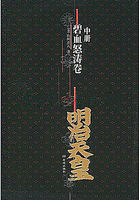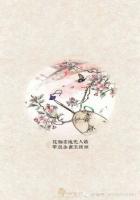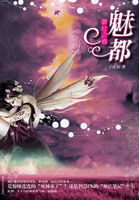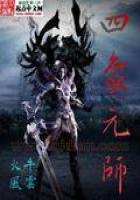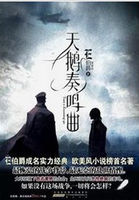On the announcement of the herald that it was the sixth watch--about 2 or 3 P.M.--Vikram allowed himself to follow his own inclinations, to regulate his family, and to transact business of a private and personal nature.
After gaining strength by rest, he proceeded to review his troops, examining the men, saluting the officers, and holding military councils. At sunset he bathed a third time and performed the five sacraments of listening to a prelection of the Veda; making oblations to the manes; sacrificing to Fire in honour of the deities;giving rice to dumb creatures; and receiving guests with due ceremonies. He spent the evening amidst a select company of wise, learned, and pious men, conversing on different subjects, and reviewing the business of the day.
The night was distributed with equal care. During the first portion Vikram received the reports which his spies and envoys, dressed in every disguise, brought to him about his enemies. Against the latter he ceased not to use the five arts, namely--dividing the kingdom, bribes, mischief-making, negotiations, and brute-force--especially preferring the first two and the last. His forethought and prudence taught him to regard all his nearest neighbours and their allies as hostile. The powers beyond those natural enemies he considered friendly because they were the foes of his foes. And all the remoter nations he looked upon as neutrals, in a transitional or provisional state as it were, till they became either his neighbours'
neighbours, or his own neighbours, that is to say, his friends or his foes.
This important duty finished he supped, and at the end of the third watch he retired to sleep, which was not allowed to last beyond three hours. In the sixth watch he arose and purified himself. The seventh was devoted to holding private consultations with his ministers, and to furnishing the officers of government with requisite instructions. The eighth or last watch was spent with the Purohita or priest, and with Brahmans, hailing the dawn with its appropriate rites; he then bathed, made the customary offerings, and prayed in some unfrequented place near pure water.
And throughout these occupations he bore in mind the duty of kings, namely--to pursue every object till it be accomplished; to succour all dependents, and hospitably to receive guests, however numerous. He was generous to his subjects respecting taxes, and kind of speech; yet he was inexorable as death in the punishment of offenses. He rarely hunted, and he visited his pleasure gardens only on stated days. He acted in his own dominions with justice;he chastised foreign foes with rigour; he behaved generously to Brahmans, and he avoided favouritism amongst his friends. In war he never slew a suppliant, a spectator, a person asleep or undressed, or anyone that showed fear. Whatever country he conquered, offerings were presented to its gods, and effects and money were given to the reverends. But what benefited him most was his attention to the creature comforts of the nine Gems of Science: those eminent men ate and drank themselves into fits of enthusiasm, and ended by immortalizing their patron's name.
Become Vikram the Great he established his court at a delightful and beautiful location rich in the best of water. The country was difficult of access, and artificially made incapable of supporting a host of invaders, but four great roads met near the city. The capital was surrounded with durable ramparts, having gates of defence, and near it was a mountain fortress, under the especial charge of a great captain.
The metropolis was well garrisoned and provisioned, and it surrounded the royal palace, a noble building without as well as within. Grandeur seemed embodied there, and Prosperity had made it her own. The nearer ground, viewed from the terraces and pleasure pavilions, was a lovely mingling of rock and mountain, plain and valley, field and fallow, crystal lake and glittering stream. The banks of the winding Lavana were fringed with meads whose herbage, pearly with morning dew, afforded choicest grazing for the sacred cow, and were dotted with perfumed clumps of Bo-trees, tamarinds, and holy figs: in one place Vikram planted 100,000 in a single orchard and gave them to his spiritual advisers.
The river valley separated the stream from a belt of forest growth which extended to a hill range, dark with impervious jungle, and cleared here and there for the cultivator's village. Behind it, rose another sub-range, wooded with a lower bush and already blue with air, whilst in the background towered range upon range, here rising abruptly into points and peaks, there ramp-shaped or wall-formed, with sheer descents, and all of light azure hue adorned with glories of silver and gold.
After reigning for some years, Vikram the Brave found himself at the age of thirty, a staid and sober middle-aged man, He had several sons--daughters are naught in India--by his several wives, and he had some paternal affection for nearly all--except of course, for his eldest son, a youth who seemed to conduct himself as though he had a claim to the succession. In fact, the king seemed to have taken up his abode for life at Ujjayani, when suddenly he bethought himself, "I must visit those countries of whose names Iam ever hearing." The fact is, he had determined to spy out in disguise the lands of all his foes, and to find the best means of bringing against them his formidable army.
* * * * * *
We now learn how Bhartari Raja becomes Regent of Ujjayani.
Having thus resolved, Vikram the Brave gave the government into the charge of a younger brother, Bhartari Raja, and in the garb of a religious mendicant, accompanied by Dharma Dhwaj, his second son, a youth bordering on the age of puberty, he began to travel from city to city, and from forest to forest.

